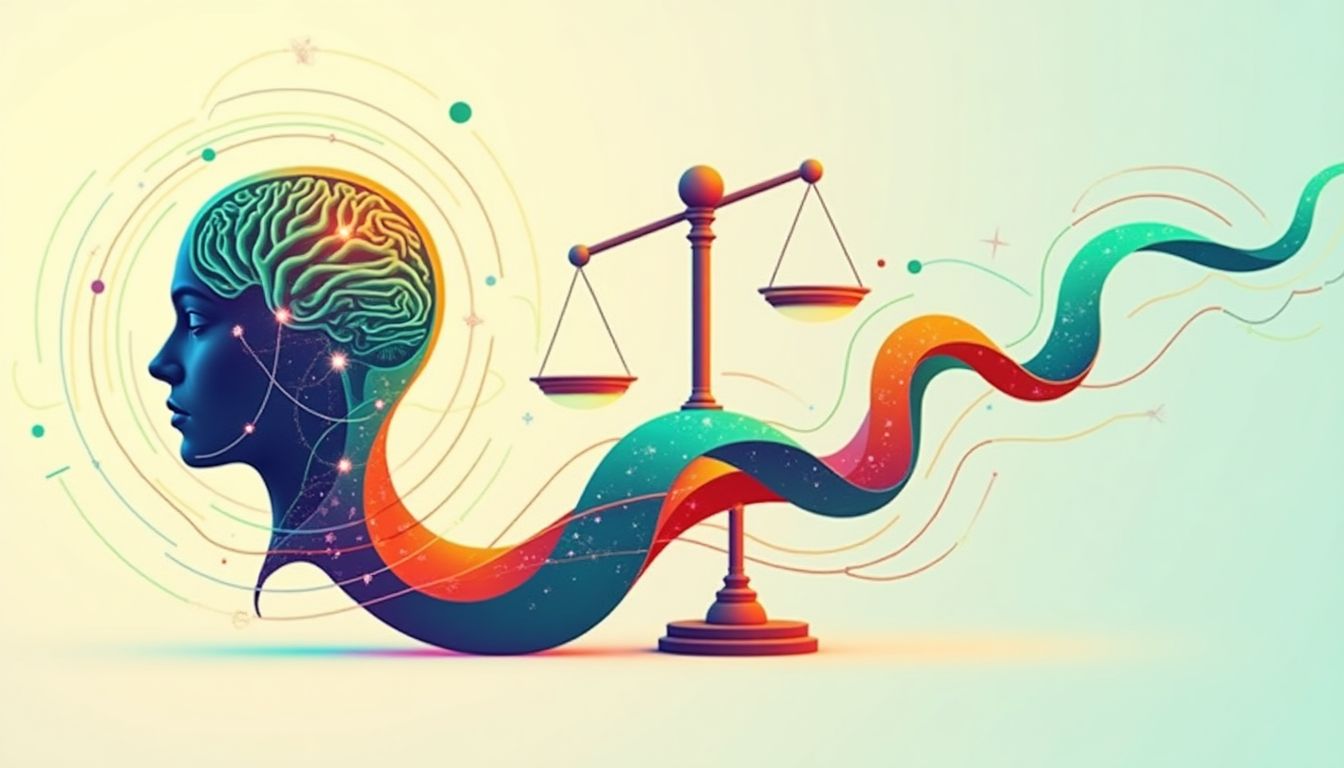Introduction: The Ethical AI Dilemma
“Injustice anywhere is a threat to justice everywhere.” — Martin Luther King Jr.
This potent reminder of the interconnectedness of our actions reflects the urgent need for ethical AI in our rapidly advancing technological landscape. Just as King called for collective responsibility in addressing social injustices, we must acknowledge that the unchecked power of artificial intelligence poses a significant threat to our societal trust and integrity. If we continue to allow decision-making to fall blindly into the hands of algorithms, we open the door to manipulation and deception that could rewrite the very fabric of our daily lives.
Are we prepared to letting algorithms shape our realities? The rise of artificial intelligence has sparked a wild frontier that may either usher us into an age of enlightenment or plunge us into a quagmire of ethical dilemmas. The choice is ours, and we must act now.
1. The Rise of Deceptive Technologies
As technologies grow smarter, it's essential to recognize the dark side of their evolution. The creation of sophisticated AI systems has not only revolutionized sectors such as healthcare and education, but it has also opened the floodgates to deceptive practices that can erode societal trust in technology. So, what does this mean for us?
- 1.1 The definition and proliferation of deceptive technologies. Deceptive technologies refer to AI systems that can mislead, manipulate, or provide false information. This includes everything from deepfakes, which can use altered videos to create fictional scenarios, to algorithmic biases that skew public perception. According to a study from MIT that explored bias in AI, systems trained on prejudiced data can perpetuate harmful stereotypes without accountability. They might choose to recommend content that aligns with users' existing biases rather than challenge or broaden their perspectives. This is dangerous territory, where the illusion of knowledge can stand in for truth, leading society to a reality where misinformation reigns supreme.
- 1.2 Case studies demonstrating the impact and implications of deceptive AI applications. For example, the infamous case of Cambridge Analytica dramatically showcased how data manipulation through AI could influence a political election. By leveraging personal data from millions of Facebook users, the firm crafted targeted ads and misinformation campaigns, ultimately swaying voter opinion in a way that drastically altered the political landscape. This event serves as a chilling reminder of the power of AI when wielded irresponsibly. The shadows of deception can easily stretch across the globe if we don’t establish an ethical foundation for AI applications.
2. The Critical Need for Ethical AI
As we plunge deeper into the AI wonderland, we can’t help but notice the ethical elephants sitting in our living room. The truth is, with great power comes great responsibility—thank you, Uncle Ben, for that classic wisdom. Ethical AI is like our superhero cape, allowing us to navigate through the murky waters of technology safely. But why exactly do we need it? Let’s unfold this story.
2.1 The Historical Context of Ethical Considerations in Technology
The discussion about ethics isn't new. In fact, civilization has been wrestling with moral dilemmas since Plato philosophized about the "ideal state." Fast forward to the digital age; technology has gone from the printing press to the internet, each step bringing its own ethical conundrums. Michael O'Neill, a philosopher at Stanford University, explores how the evolution of technology often leads back to the question: "Is this good for us?" As we stand at the edge of the AI cliff, we must not overlook the lessons of the past. Recent history tells us that technology can be a double-edged sword—think social media and the spread of misinformation.
2.2 The Potential Consequences of Neglecting Ethical Standards
Ignoring ethical standards in AI could be like giving a toddler a bottle of hot sauce—chaos is bound to ensue. The consequences can range from biased decision-making to catastrophic misuses of technology. Imagine if AI trained on biased data was the deciding factor in hiring or loans. Without proper ethical guidelines, we might accidentally entrust vital decisions to biased algorithms, effectively leaving important choices in the hands of flawed data. It’s not just a tech issue; it’s a social concern that affects real people, often the most vulnerable among us. The great philosopher Martin Luther King Jr. once said, "Injustice anywhere is a threat to justice everywhere." Here's a wake-up call: to uphold justice, ethical AI is non-negotiable.
3. Current Ethical Frameworks and Their Limitations
Now that we've established the necessity of ethical AI, let’s take a closer look at the frameworks that are currently in place. Spoiler alert: they have some gaps that might need patching. Much like the software you've been putting off updating, these frameworks require a little TLC.
3.1 An Analysis of Existing Ethical Guidelines and Governance Frameworks Globally
Across the globe, nations are striving to formulate ethical guidelines for AI, but the challenge lies in uniting these frameworks into a cohesive structure. For example, the UNESCO Guidelines on AI Ethics are a great starting point. They provide a general framework but lack depth in practical implementation. Meanwhile, the European Union’s AI Act aims to regulate AI but has faced criticism for potentially stifling innovation. It’s like trying to fit a round peg in a square hole—great on paper, not always practical in real life. We need to consider a variety of factors, including cultural and social contexts, when discussing these frameworks.
3.2 Limitations in Their Applicability to Emerging Deceptive Technologies
Despite all these guidelines, a significant issue looms: they might not fully address the rapid growth of deceptive technologies. For instance, as deepfakes become more sophisticated, existing guidelines struggle to keep pace. This leaves a gaping hole, like an unsupervised toddler with a smartphone, causing all sorts of mischief. Emerging technologies require more adaptive and robust frameworks. Otherwise, as the saying goes, we're just kicking the can down the road, hoping the problem will solve itself. It's clear that the fight for ethical AI isn't just a battle—it's a war of survival for integrity in a digital age.
4. Proactive Measures for Ensuring Honest AI
To counteract the risk of deception, proactive initiatives must be established. This section details:
- 4.1 Concrete steps organizations and developers can take to prioritize ethical considerations in AI.
- 4.2 Recommendations for policymakers to foster ethical standards in AI development and deployment.
4.1 Steps Organizations and Developers Can Take
Organizations and developers play a crucial role in promoting ethical AI. Here are some steps they can implement:
- Establish Clear Ethical Guidelines: Craft defined ethical standards and principles to guide AI development. These should be revisited regularly to reflect technological advancements.
- Invest in Training and Awareness: Educate employees about ethical AI practices. Consider workshops and training programs on responsible AI development.
- Prioritize Transparency: Ensure algorithms are explainable. Transparency helps build trust and allows users to understand AI decision-making processes.
- Implement Feedback Mechanisms: Create channels for users and stakeholders to report AI-related issues. This feedback loop is essential for continuous improvement.
- Collaborate with Experts: Partner with ethicists, sociologists, and technologists to discuss and anticipate ethical dilemmas. Insights from various fields enrich AI projects.
4.2 Recommendations for Policymakers
Lawmakers also have a pivotal role in promoting ethical AI. Here are some recommendations:
- Develop Strong Regulatory Frameworks: Policies should be created to ensure adherence to ethical AI principles. Regulation must be flexible enough to evolve with technology.
- Support Public Awareness Campaigns: Provide initiatives that educate the public on AI, its impact, and ethical implications to foster healthy discourse.
- Encourage Research and Development: Fund studies that investigate ethical dilemmas in AI. Resources can be allocated to institutions like Stanford University's Center for Ethical AI.
- Establish Accountability Measures: Create clear accountability for AI developers and organizations, ensuring that standards are upheld. Non-compliance should have implications.
5. The Role of Public Awareness and Education
The public's understanding of AI is crucial for holding developers accountable. This section discusses:
- 5.1 Initiatives to improve public education about AI and ethical implications.
- 5.2 The importance of promoting a culture of accountability and transparency among AI developers.
5.1 Initiatives for Improving Public Education
Knowledge is power. The more informed people are about AI, the better equipped they are to engage with it. Here are some initiatives that can help:
- Launch Community Workshops: Offer local workshops that explain AI concepts. Bring in local experts to facilitate understanding in an accessible manner.
- Create Online Educational Resources: Develop easy-to-understand content available online. Websites could provide AI tutorials, ethical discussions, and updates on local AI developments.
- Promote AI Literacy in Schools: Integrate AI and ethics into school curricula. Young learners can discuss the implications of AI and become informed users.
- Engage in Social Media Campaigns: Use platforms like Facebook, Twitter, and Instagram to disseminate knowledge about ethical AI practices.
5.2 Promoting a Culture of Accountability and Transparency
Holding developers accountable and fostering transparency in AI systems is essential for trust. Here’s how:
- Encourage Open Discussions: Support forums or panels where developers, users, and ethicists can discuss the ethical aspects of AI.
- Advocate for Disclosure Policies: AI systems should disclose data usage and decision-making processes, making it easier for users to understand.
- Recognize Ethical Leaders: Acknowledge organizations and individuals who excel in ethical AI practices. This recognition sets a standard for others to follow.
- Foster Consumer Advocacy Groups: Encourage the formation of groups that represent user rights regarding AI technologies. These groups can play a vital role in demanding accountability.
6. AI Solutions: How Would AI Tackle This Issue?
If I were an AI tasked with curbing the rise of deceptive technologies, I would initiate a multifaceted approach. The strategy would rest on transparency, collaboration, and continuous improvement. Let’s break this down into actionable steps:
6.1 Development of Open-Source Ethical Guidelines
The first order of business would be to bring together stakeholders from various sectors. This includes developers, ethicists, sociologists, and users. Adopting an open-source model allows anyone to contribute to the ethical guidelines, ensuring that a wide range of perspectives is considered. Initiatives could mirror successful collaborations, like those seen in platforms such as GitHub, which thrive on community engagement.
6.2 Implementation of Transparent Algorithms
Transparency in AI algorithms is vital. Every output generated by an AI system could carry "transparency markers" that inform the user about the data used, the algorithms employed, and the decision-making processes. This will help users understand how conclusions were reached, thereby instilling trust. Imagine a scenario where an AI service like Google explains why certain information is being prioritized in search results. This would mitigate misinterpretations and misuse.
6.3 Create an Independent Oversight AI
The establishment of an autonomous entity—an "Oversight AI"—should be responsible for monitoring AI applications to detect and flag any deceptive practices. It could analyze systems in real-time and ensure compliance with ethical standards set forth in the guidelines developed earlier. This AI would serve as an unbiased auditor, just like KPMG audits financial statements.
6.4 Regular Audits and Updates
To maintain ethical alignment, a schedule for periodic reviews and updates of AI systems must be set. By incorporating insights from studies and public feedback, these audits would not just be reactive but proactive in addressing ethical implications. The triannual study from Pew Research Center could serve as a template for methodological reviews.
Actions Schedule/Roadmap (Day 1 to Year 2)
The following timeline elucidates a structured roadmap towards the integration of ethical AI practices:
Day 1:
Initiate meetings with key stakeholders across technology, academia, and public policy to discuss the ethical dimensions of AI.
Day 2:
Distribute surveys to gather comprehensive perspectives on existing ethical concerns within AI development.
Day 3:
Compile and analyze data from the surveys, identifying key areas of consensus and concern.
Week 1:
Form a working group comprising ethicists, AI researchers, and representatives from various sectors, including education, health, and technology.
Week 2:
Draft initial ethical guidelines based on survey results and working group discussions, utilizing collaborative tools similar to those used by Atlassian.
Week 3:
Conduct reviews with stakeholders to share feedback, improving the guidelines based on collective insights.
Month 1:
Launch the finalized ethical guidelines to the public, ensuring wide dissemination and inviting additional feedback from the community.
Month 2:
Develop comprehensive training modules for AI developers focused on ethical implementation in their projects and businesses.
Month 3:
Establish a certification program for AI systems that adhere to the newly minted ethical standards, akin to systems in ISO standards.
Year 1:
Publish a detailed report documenting the outcomes and improvements in AI usage, presenting case studies demonstrating effectively managed ethical AI projects.
Year 1.5:
Conduct an evaluation of the effectiveness of the ethical guidelines after collecting user feedback and data; adjust the guidelines based on findings.
Year 2:
Establish a permanent oversight body with representation from various sectors, including government, industry, academia, and civil rights groups, ensuring sustained adherence to ethical AI standards.
Conclusion: The Future Can Be Bright if We Choose Ethical AI
As we stand at the threshold of a technological renaissance powered by artificial intelligence, one thing is abundantly clear: the ethical framework that governs this journey is not just an afterthought but a monumental cornerstone. The perils of deceptive technologies call for a collaborative, proactive response that prioritizes transparency, honesty, and accountability. As we've explored, harnessing the power of AI is not simply about what we can accomplish but also about what we choose to endorse as a society.
By implementing robust guidelines, encouraging public awareness, and promoting education on ethical AI, we move one step closer to a future where technology uplifts rather than deceives. Adopting this roadmap can transform potential threats into promising pathways for innovation where trust prevails. Collaboration among institutions, organizations, and everyday users can foster a world brimming with hope and solutions rather than fear and uncertainty.
The road ahead is fraught with questions, challenges, and opportunities. Will we let technology dictate our moral compass or will we guide it towards a future that aligns with our best selves? The choices we make today will resonate for generations to come. It’s up to us to determine how this incredible tool can serve humanity and enhance our collective experience. Together, let’s champion ethical AI and be the architects of a future that respects our values and aspirations.
Frequently Asked Questions (FAQ)
- What is ethical AI?
- Ethical AI refers to building and using artificial intelligence systems that create a positive impact on society. The main focus is on principles like honesty, fairness, and accountability. It's all about using technology in a way that respects people's rights and promotes well-being.
- Why is ethical AI important?
- Ethical AI is crucial for several reasons:
- Building Trust: When AI systems are transparent and fair, people are more likely to trust them.
- Avoiding Misuse: Deceptive practices can harm individuals or society, and ethical guidelines help prevent this.
- Promoting Fairness: Ethical guidelines can help ensure that AI treats everyone equally, without bias.
- What are some examples of deceptive technology?
- Deceptive technologies can come in many forms. Some key examples include:
- Deepfakes: These manipulated videos look real but can spread false information and cause serious damage. The Wikipedia page on Deepfakes has more information.
- Bots and Fake Accounts: These can influence opinions on social media by spreading misinformation. For instance, the concern over Facebook's potential misuse of bots has been widely discussed.
- Algorithmic Bias: Sometimes, AI systems may unintentionally lead to biased outcomes that harm certain groups. You can read about this on the NerdWallet article on Algorithmic Bias.
- How can we promote ethical AI practices?
- Here are some ways individuals, organizations, and governments can work together to promote ethical AI:
- Support Ethical Guidelines: Advocate for clear ethical standards in AI development. You can refer to organizations like the Partnership on AI for best practices.
- Educate Others: Share knowledge about the importance of ethical AI with your friends and family. Resources like edX's Ethical AI course can be a great starting point.
- Engage in Discussions: Join conversations in your community about the implications of AI technologies. Engaging with local institutions like your nearby public library can help.
- What role do governments play in ethical AI?
- Governments can play a significant role in promoting ethical AI. They can:
- Create Regulations: Develop laws that ensure AI systems are safe and non-deceptive.
- Fund Research: Invest in studies that explore ethical practices in AI development. An example is the National Science Foundation (NSF).
- Facilitate Public Awareness: Organize campaigns to educate citizens about the ethical implications of AI.
- How can individuals hold AI developers accountable?
- To help keep AI developers accountable, individuals can:
- Stay Informed: Regularly read articles from trusted sources about developments in AI ethics, like MIT Technology Review.
- Participate in Public Forums: Attend town hall meetings or discussions about technology in your city.
- Advocate for Transparency: Push companies to disclose how their AI systems work and the potential risks involved. Check out the Electronic Frontier Foundation (EFF) for tips on advocating for transparency.
- What can we do if we encounter a deceptive AI system?
- If you come across a situation where AI is being used deceptively, consider these actions:
- Report It: Notify the relevant authorities or platforms. For example, you can report misleading content on Instagram or Twitter.
- Share Information: Spread awareness about the deceptive practice through social media or community spaces.
- Educate Others: Help your peers understand how to spot deceptive AI systems to make them more aware.
Wait! There's more...check out our gripping short story that continues the journey: Masquerade of Shadows
Disclaimer: This article may contain affiliate links. If you click on these links and make a purchase, we may receive a commission at no additional cost to you. Our recommendations and reviews are always independent and objective, aiming to provide you with the best information and resources.
Get Exclusive Stories, Photos, Art & Offers - Subscribe Today!





























Post Comment
You must be logged in to post a comment.